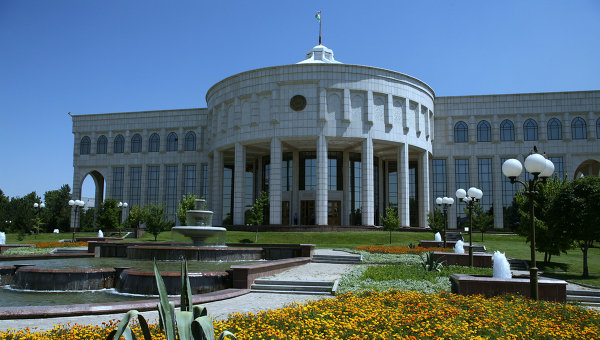Reasons behind Uzbekistan's quitting Russia-led security group

By Aynur Jafarova
Uzbekistan formally withdrew from the regional security group CSTO at the organization's summit in Moscow on Wednesday. A question arises as to what could be behind the Central Asian state's decision to quit the Russia-led Collective Security Treaty Organization.
First of all, it is worth mentioning that Uzbekistan never fully participated in the CSTO activities. It repeatedly blocked the decisions of the organization -- instead of cooperating with it -- due to differences.
Uzbekistan was taking part in military exercises conducted by the organization, but it was not a member of the CSTO Collective Rapid Reaction Force (RRF).
Farkhod Tolipov, an associate professor at a Tashkent-based university, commented that by canceling its membership in the CSTO Uzbekistan can "kill three birds with one stone". First, Tashkent's long pursued strategy of delaying the post-Soviet integration revitalized by Russian President Vladimir Putin is realized.
Second, Tashkent takes advantage of its newly improved relations with the U.S. and NATO, especially in the wake of the operations in Afghanistan. We recall that the U.S. and Uzbekistan are officially strategic partners.
Moreover, it is not far-fetched to think that NATO will soon design a special Central Asian strategy and Uzbekistan, as a partner in NATO's Partnership for Peace Program, will logically be the alliance's key partner in the region. In this regard, Uzbekistan's CSTO membership would frustrate the Uzbekistan-NATO partnership.
Third, Uzbekistan gets a chance to restore its informal status as a regional leader.
Nathan Hamm, the founder and Principal Analyst for Registan, thinks that the withdrawal of Uzbekistan from the CSTO comes after Putin's integration policy.
Eurasian integration has been a key priority in Vladimir Putin's foreign policy. With a renewed Russian push for Eurasian integration via multilateral organizations like the CSTO, Uzbekistan sees continued membership as a threat to its sovereignty. President Islam Karimov believes Uzbekistan to be the most important and powerful state in Central Asia.
But Uzbekistan's withdrawal from the CSTO cannot be regarded as a sign of a cooldown in Russian-Uzbek relations.
During Putin`s one-day visit to Tashkent in June the two countries' presidents signed a declaration on deepening bilateral strategic partnership.
Russian Foreign Minister Sergei Lavrov has said Russia is interested in further cooperation with Uzbekistan during his visit to Tashkent in December. Lavrov noted that though Uzbekistan was quitting the organization it remains Russia's strategic partner.
These steps demonstrate that Tashkent has not completely distanced itself from Moscow, which will remain its strategic partner, analysts say.
The CSTO has accepted Uzbekistan's decision to withdraw from the organization, but there will be no concessions for the country in joining the organization once again.
The CSTO's current members are Russia, Armenia, Belarus, Kazakhstan, Kyrgyzstan, and Tajikistan.
Uzbekistan previously left the CSTO, in 1999, refusing to extend a relevant agreement, but in August 2006 reinstated its membership, after its relations with the West cooled down due to the criticism of the crackdown on protesters in Andijan in 2005.
Here we are to serve you with news right now. It does not cost much, but worth your attention.
Choose to support open, independent, quality journalism and subscribe on a monthly basis.
By subscribing to our online newspaper, you can have full digital access to all news, analysis, and much more.
You can also follow AzerNEWS on Twitter @AzerNewsAz or Facebook @AzerNewsNewspaper
Thank you!
